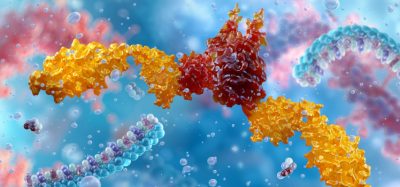Erleada® reduces prostate-specific antigen (PSA) by 86 percent
Posted: 13 September 2021 | Anna Begley (European Pharmaceutical Review) | No comments yet
Erleada achieved an 86 percent reduction in PSA at 12 months in the majority of patients, shows post-hoc analysis of Phase III study.


The Janssen Pharmaceutical Companies of Johnson & Johnson have announced new data demonstrating robust prostate-specific antigen (PSA) response and strong adherence rates in patients with non-metastatic castration-resistant prostate cancer (nmCRPC) treated with Erleada® (apalutamide) in the real-world clinical setting.
The strong PSA response was also seen in a separate post-hoc analysis that showed a correlation between rapid and deep PSA response and prolonged survival in both metastatic castration-sensitive prostate cancer (mCSPC) and nmCRPC. The post-hoc analysis also supports the use of PSA as a predictive biomarker in the treatment of patients with advanced prostate cancer.
Erleada is an androgen receptor inhibitor indicated for the treatment of patients with nmCRPC and for the treatment of patients with mCSPC. To date, published results on Erleada include data from more than 2,000 patients across three Phase III clinical studies, displaying a statistically significant improvement in overall survival with a consistent safety profile while maintaining health-related quality of life in both approved indications of mCSPC and nmCRPC. Erleada is currently approved in more than 74 countries.
The post-hoc analysis of the Phase III TITAN and SPARTAN studies examined PSA kinetics in 2,259 patients with either mCSPC (TITAN) or nmCRPC (SPARTAN). Results showed that patients with advanced prostate cancer of either type, treated with Erleada plus androgen deprivation therapy (ADT) had rapid, deep and durable PSA declines as early as three months and continuing beyond a year after initiating Erleada therapy.
In TITAN, the percentage of patients with a PSA decline of ≥50 percent or ≥90 percent or with an undetectable PSA was approximately three times higher for patients treated with Erleada plus ADT, compared to patients treated with ADT alone. In the SPARTAN trial, no PSA decline was observed in patients treated with ADT alone, as may be expected, but the addition of Erleada showed robust PSA decline, including undetectable levels in a significant proportion of patients, similar to TITAN.
In both studies, those patients who achieved a deeper PSA decline also showed a rapid PSA decline and a faster and deeper PSA decline was correlated with longer overall survival. Furthermore, median time to deep PSA decline appeared to be more rapid for Erleada plus ADT (1.9 months for TITAN, 2.8 months for SPARTAN) than has been previously reported for other therapies.
In a separate presentation, a US real-world study of 193 patients with nmCRPC treated with Erleada plus ADT for an average of approximately one year found that the majority of patients demonstrated high treatment adherence, with more than 90 percent of patients adhering to therapy in both Black and non-Black subgroups (90.1 percent and 94.5 percent, respectively).
Moreover, the majority (83.5 percent) of the overall population achieved a 50 percent reduction in PSA in the first six months and 86 percent reduction at 12 months after initiating Erleada. These results were consistent with PSA responses reported from the Phase III results of the SPARTAN trial, which showed that 90 percent of patients achieved more than or equal to 50 percent reduction in PSA by three months and maintained that response 12 months after initiating Erleada.
“Outside of a clinical trial setting, healthcare professionals are focused on ensuring a therapy can benefit patients treated in the real world. To have both high adherence rates and robust PSA reductions is very encouraging,” stated Benjamin Lowentritt, lead study investigator. “These findings support the use of apalutamide in delaying disease progression and metastasis in patients with nmCRPC across various demographics.”
Related topics
Anti-Cancer Therapeutics, Big Pharma, Clinical Trials, Data Analysis, Dosage, Drug Safety, Research & Development (R&D), Therapeutics
Related organisations
Janssen Pharmaceutical Companies of Johnson & Johnson, Janssen Pharmaceuticals
Related drugs
Related people
Related diseases & conditions
non-metastatic castration-resistant prostate cancer, Prostate cancer









